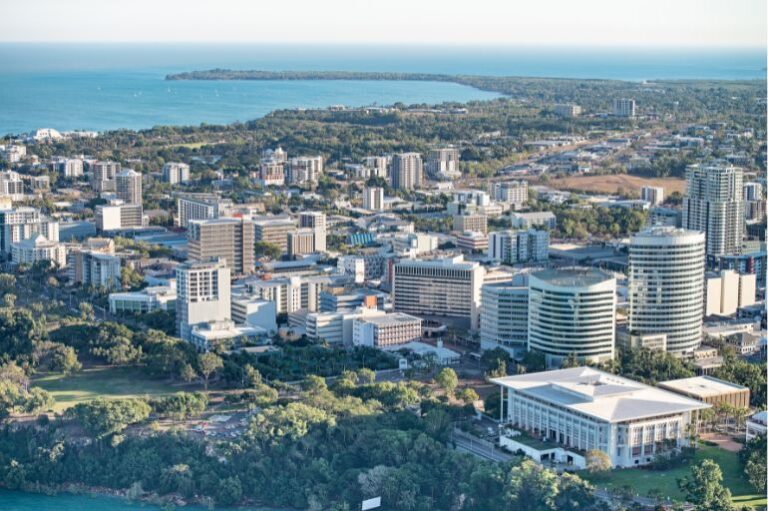The Northern Territory Government has developed a comprehensive strategy to encourage electric vehicle (EV) adoption as part of its response to climate change, aiming to reduce emissions and achieve a 50% renewable energy target by 2030. This multi-faceted plan, established in 2021 and scheduled to run through 2026, addresses the key areas of vehicle cost and availability, charging infrastructure, knowledge and skills development, and consumer information. Below is an overview of the Northern Territory Government’s progress and planned actions to foster EV use across the region.
1. Reducing Vehicle Costs and Increasing Availability
The high upfront cost of EVs remains a primary barrier to adoption. To mitigate this, the Northern Territory (NT) Government has implemented financial incentives and adjustments to make EVs more accessible. In 2022, the government introduced a five-year exemption on registration fees for EVs and a $1,500 reduction in stamp duty on EV purchases, effectively eliminating stamp duty for vehicles under $50,000. By easing these costs, the government hopes to lower financial barriers and encourage early adoption.
Additionally, NT Fleet policies now prioritise EVs, mandating pool vehicle replacements with EVs where appropriate. This transition to EVs in the government fleet aims to not only cut operational emissions but also stimulate a second-hand EV market as vehicles reach their end of lease. As of late 2024, there are 110 passenger/commercial EVs in the NT Government Fleet, with ongoing efforts to increase this number by 20 vehicles annually until 2030.
2. Expanding EV Charging Infrastructure
A robust charging network is essential to alleviate range anxiety and support EV adoption, especially given the NT’s vast and sparsely populated landscape. The government has worked to install charging stations across key areas. By 2023, 66 chargers had been set up across 16 sites in Darwin, Palmerston, and nearby rural areas, with additional installations in Alice Springs, Katherine, and the Top End. These installations not only serve government vehicles but also provide public access to charging at locations such as the Royal Darwin Hospital, Alice Springs Hospital, and Darwin’s State Square car park.
The NT Government collaborates with the Australian Government and the NRMA on the “Driving the Nation” program to establish fast-charging stations along major highways, with 16 fast chargers planned for the Stuart, Barkly, and Victoria Highways. A milestone was achieved in October 2023 when a solar-powered, off-grid charging prototype was installed at Erldunda Roadhouse on the Stuart Highway.
For residents and businesses, the government launched a $300,000 grant scheme to subsidise EV charger installation, offering $1,000 for residential installations and $2,500 for business installations. Over the first year, 48 residential and four business applications were approved, demonstrating an initial but modest uptake in home and commercial charging.
3. Building Knowledge, Skills, and Fostering Innovation
Recognising the need for specialised skills, the NT Government collaborates with the Motor Trade Association to deliver EV mechanic training and supports initiatives like the World Solar Challenge, which brings global expertise in solar and EV technology to the NT. By encouraging local training and engaging in technology trials, the government aims to equip the workforce with necessary skills for EV servicing, repair, and charger installation. This approach fosters a knowledge base that can support the expected growth in EV numbers.
The NT also has unique climatic conditions, which presents both challenges and opportunities for EV technology testing and adaptation. Efforts are being made to explore the potential of vehicle-to-grid (V2G) technology, which allows EVs to act as storage units, feeding electricity back into the grid when needed. Such technologies could provide energy resilience for remote communities and further reduce the territory’s carbon footprint.
4. Educating Consumers and Supporting EV Tourism
To further boost EV adoption, the NT Government provides consumer information through its EV Strategy website, covering topics like registration concessions, EV charger locations, and practical guidance on EV ownership. Public education efforts include promoting EV tourism by establishing routes equipped with charging stations, such as Darwin to Jabiru and Alice Springs to Uluru, encouraging visitors and locals to explore these iconic areas in an EV.
The government has also introduced standardised EV number plate labelling to assist emergency responders and raise public awareness of EVs on the road. Consumer feedback from surveys has shown support for government action to promote EV uptake, with range anxiety identified as a major concern for prospective buyers. The government’s public information efforts seek to address these concerns by highlighting the suitability of EVs for short commutes and urban travel common in the NT’s cities like Darwin and Alice Springs.
Outcomes and Ongoing Initiatives
The NT’s EV Strategy aligns with national standards through the National EV Strategy, ensuring consistent information and consumer guidance. Since implementing the strategy, EV registrations have shown a steady increase, with 838 registered passenger and commercial EVs and 84 electric motorcycles as of September 2024. The government’s commitment to transitioning its fleet and establishing an extensive public charging network demonstrates leadership and encourages wider community adoption.
The Northern Territory’s approach to EV adoption showcases the benefits of government leadership in sustainable mobility. By implementing incentives, developing infrastructure, building local expertise, and informing the public, the NT Government sets a strong foundation for EV growth, aligning with its climate goals and preparing the territory for a cleaner, greener future in transportation.





